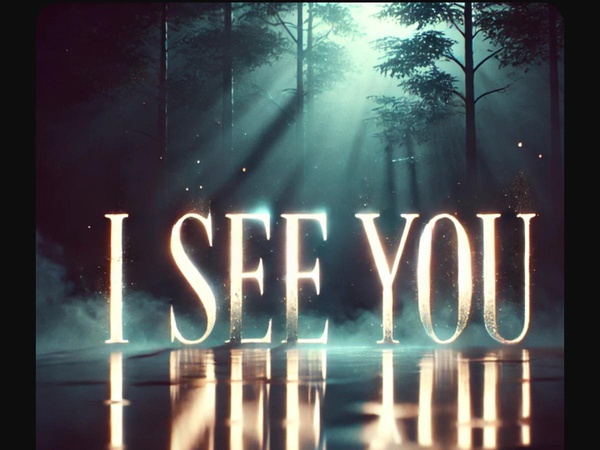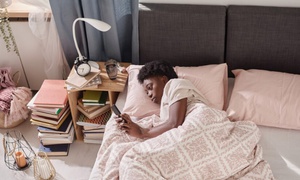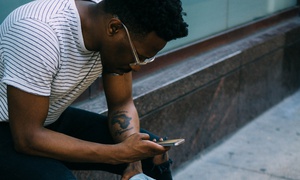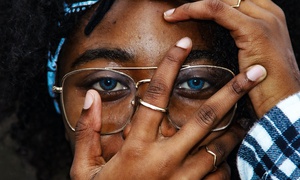<p><br></p><p><br></p><p>In a world that demands perfection,strength,and poise from women at every stage of life,many carry wounds that go unseen. Behind bright smiles and grateful composure often lie untold stories of pain,exhaustion,and silent battles. The phrase "YOU ARE NOT ALONE,I SEE YOU" becomes more than just words - it becomes a lifeline,a recognition of the inner turmoil many women endure without acknowledgment.</p><p><br></p><p>The Pain Beneath the Surface</p><p><br></p><p>From an early age, women are often taught to be polite,accommodating,and resilient. These traits,while admirable,can also be burdensome. They create an expectation to "KEEP IT TOGETHER" even when everything is falling apart. Whether it's the grief of a miscarriage,the sting of emotional abuse,the weight of postpartum depression,or the scars of childhood trauma - many women feel the need to suppress their pain,fearing judgment,misunderstanding,or dismissal.</p><p><br></p><p>Workplaces expect PROFESSIONALISM. Families expect CAREGIVING, Society expects BEAUTY,STRENGTH & SELFLESSNESS. But who cares for the woman when she feels like she's drowning?</p><p><br></p><p><br></p><p>In hallways, boardrooms, kitchens, and crowded streets, women walk silently with stories etched into their bodies and minds. Stories they rarely tell — not because they don’t want to, but because the world rarely listens.</p><p><br></p><p>The Power of Being Seen</p><p><br></p><p>To be seen in your pain is to be validated. It is to hear someone say,"I know you're hurting,even if no one else notices. I see your effort,your tears,your strength. You are not invisible. You matter."</p><p><br></p><p>"YOU ARE NOT ALONE, I SEE YOU" is a whisper to every woman who has learned to hide her pain behind duty, behind strength, behind silence. It’s a message for those who feel invisible in their suffering, for those who have learned to smile when they want to scream.</p><p><br></p><p>The Culture of Concealment</p><p><br></p><p>For generations, women have been conditioned to bear pain with grace. Crying is “too emotional.” Anger is “unattractive.” Vulnerability is “weakness.” These messages aren’t always spoken aloud — sometimes they’re inherited, absorbed from watching mothers and grandmothers endure in silence.</p><p><br></p><p>This culture of concealment shows up in countless ways:</p><p><br></p><p>A girl bullied for her body but told to “ignore it.”</p><p><br></p><p>A teenager grappling with identity, expected to “fit in.”</p><p><br></p><p>A woman enduring harassment but afraid of being blamed.</p><p><br></p><p>A mother battling depression yet praised only for her sacrifice.</p><p><br></p><p>A wife surviving domestic abuse behind closed doors, feeling too ashamed to speak.</p><p><br></p><p><br></p><p>In each case, the world often turns away, minimizes, or fails to ask the right questions. And so, women learn to swallow their stories whole.</p><p><br></p><p>The Weight of Unseen Pain</p><p><br></p><p>Unseen pain is heavy. It lodges itself in the throat, in the chest, in the spine. It shows up in sleepless nights, short tempers, chronic fatigue, and quiet tears spilled in the dark. It erodes confidence and dims joy. And still, women go on — raising families, building careers, showing up — often without anyone truly knowing the depth of what they’re carrying.</p><p><br></p><p>But pain that is hidden doesn’t disappear. It festers. It isolates. And worst of all, it convinces the sufferer that she is alone.</p><p><br></p><p>The Power of Being Seen</p><p><br></p><p>Being seen is not the same as being looked at. Being seen means being understood — or at the very least, believed. It means someone recognizes your humanity, your experience, your right to feel what you feel.</p><p><br></p><p>When a woman hears, “I see you,” it tells her:</p><p><br></p><p>Your pain matters.</p><p><br></p><p>You don’t have to pretend anymore.</p><p><br></p><p>You are not broken, and you are not alone.</p><p><br></p><p>Even the smallest acknowledgment can be powerful. A friend who listens without judgment. A stranger who offers kindness instead of critique. A partner who notices the signs of silent struggle. These are not grand gestures, but they are lifelines.</p><p><br></p><p>Sisterhood as Sanctuary</p><p><br></p><p>One of the most healing things a woman can experience is another woman saying, “Me too.” In shared stories, shame loses its grip. In sisterhood, secrets become solidarity.</p><p><br></p><p>We must build more of these sanctuaries — spaces where truth can live without fear. Where women can say, “I’m tired,” or “I’m scared,” or “I need help,” and be met with compassion, not condemnation.</p><p><br></p><p>Let’s teach our daughters to speak their pain instead of swallowing it. Let’s teach our sons to listen deeply. Let’s hold space for the women who are not ready to speak — but still deserve to be seen.</p><p><br></p><p>Validation doesn't solve every problem,but it opens the door to healing. It breaks the isolation that often amplifies suffering. When someone recognizes your pain,it chips away at the shame, reminding you that what you feel is real and worthy of attention. YOU ARE NOT ALONE,I SEE YOU.</p><p><br></p><p>To Every Woman Reading This</p><p><br></p><p>If you are carrying silent pain, please know this:</p><p><br></p><p>You are not weak because you feel deeply.</p><p>You are not dramatic because you speak your truth.</p><p>You are not less worthy because you’ve been hurt.</p><p><br></p><p>YOU ARE NOT ALONE.</p><p>I SEE YOU.</p><p>And there is space for your story here.</p><p><br></p><p>Let this be your permission — to rest, to cry, to rage, to heal. You don't have to do it all, be it all, or carry it all by yourself anymore. Healing begins the moment you realize your pain is valid — and that someone truly sees you.</p><p><br></p><p>I SEE YOUUUUUUUU.</p>












Comments